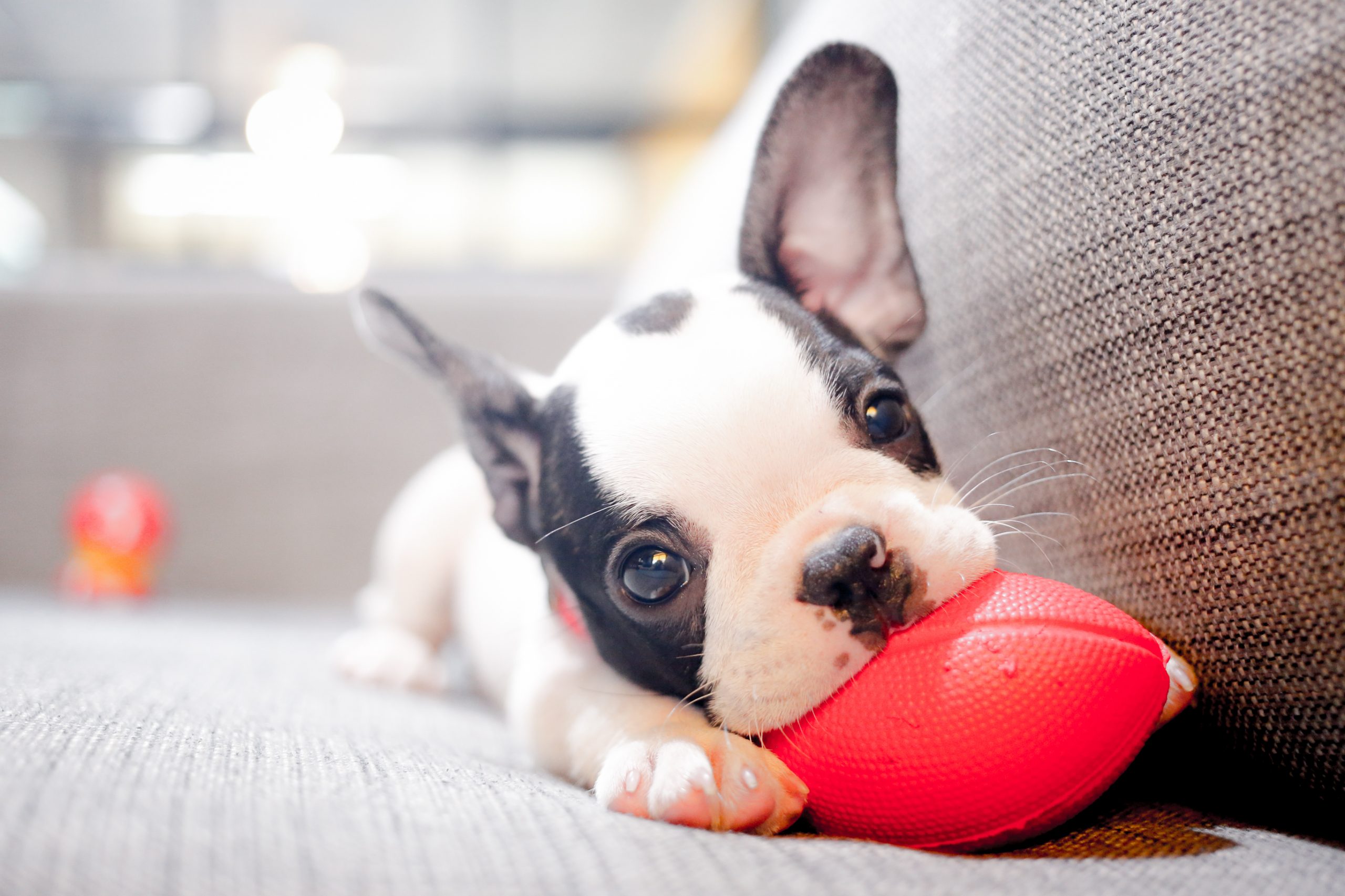Getting a new puppy can be a little daunting, particularly if you’ve never owned a puppy before.

There’s a lot to think about, including a few regular treatments to keep your puppy happy and healthy.
Here are a few of the basic things you should consider to get you started:
Vaccinations
Just like humans, vaccinations stop puppies catching certain diseases. As long as they are healthy, most puppies can be vaccinated from the age of 6 weeks. They usually need 2 vaccinations, 2 to 4 weeks apart. Puppies need to be 10 weeks old before their second vaccination. A week after they’ve had this, they’re able to venture outside.
Flea treatment
It’s not unusual for puppies to arrive with fleas. Ask the breeder if they have been treated, and if so, what product was used. This way you’ll know whether you need to treat your puppy right away. The best place to check your puppy for fleas is on their back, although you’re more likely to spot the dirt than the fleas themselves. If you do see black specks, put the specks on some damp cotton wool or white paper towel. If they turn red, this means your puppy has a flea infestation and should be treated immediately.
The flea treatment for puppies depends on their age and weight – many products can’t be used on very small puppies. Always check the packaging, or ask a pet shop owner or our vet if you’re not sure which product to use.
Worming
Worms in puppies are very common. Roundworm, for example, can be transferred from the mother to the puppy through the placenta, and in the milk.
In addition, fleas can carry and spread tapeworm, so if your puppy has a flea infestation, they almost certainly have tapeworm too.
It’s recommended that you worm puppies every couple of weeks from 2 weeks of age until they’re 12 weeks old.
Ask the breeder if your puppy has been wormed and what treatment they used. The worming treatment for puppies will depend on their age and weight, and many products can’t be used on very small puppies. Always check with your vet if you need advice.
Microchipping
A microchip – which is about the size of a grain of rice – can be implanted into the back of your puppy’s neck, just beneath the skin. It contains a special number, unique to your pet, which is registered alongside your contact details on a central database.
From April 2016, in the UK it will be compulsory for dogs to be microchipped from the age of 8 weeks.
This can easily be done when you take your puppy for its first vaccination. If you own a dog that isn’t microchipped, you could be fined £500.
Neutering
Neutering your puppy is a good idea if you want to prevent unwanted puppies in the future. It can also prevent uterine infections and mammary tumours in bitches. In male dogs, it can reduce testosterone-related aggression and prevent testicular cancer.
Many people worry that neutering their puppy will change their behaviour, but this isn’t the case. Most small breed dogs can be neutered from 6 months old. Medium or larger breeds can be left a little longer, as long as they’re not showing excessive ‘mounting’ behaviour. Bitches can be neutered either before or 3 months after their first season. The advantage of neutering them before is it virtually eliminates the chance of them developing mammary cancer later in life. However, there is a slightly increased risk of urinary incontinence. Speak to your vet about the pros and cons of each option.
Diet
Your puppy’s diet is one of the most important elements for keeping them happy and healthy. Make sure you use a high-quality puppy diet. Don’t feed your puppy adult food as it won’t contain the essential minerals they need.
It’s recommended that you feed your puppy 4 times a day until they are 12 weeks old, then 3 times a day until they are 6 months. However, it’s important you use your common sense – if your puppy is getting a bit chubby, or leaving food, cut down their meals sooner.
Don’t tempt them with human food – if they’re not eating their puppy food, this will only make the issue worse.
Behaviour
It’s important to instill manners into your puppy from a young age.
Don’t let them bite or jump up at you – if they do, simply ignore them until they do something positive, and then give them attention. For example, wait until they’re quiet before opening the door for them, or don’t walk until they’ve stopped pulling on the lead. It may feel like you’re getting nowhere, but your persistence will pay off.
Always reward your puppy for coming back when you call (even if it takes a while). The world is full of distractions – if your puppy won’t come when called in the house, they’ll struggle in an exciting park environment.
It’s also a good idea to enrol in a puppy training class. Before enrolling, ask to observe a class to ensure you are happy and comfortable with the methods being used.
